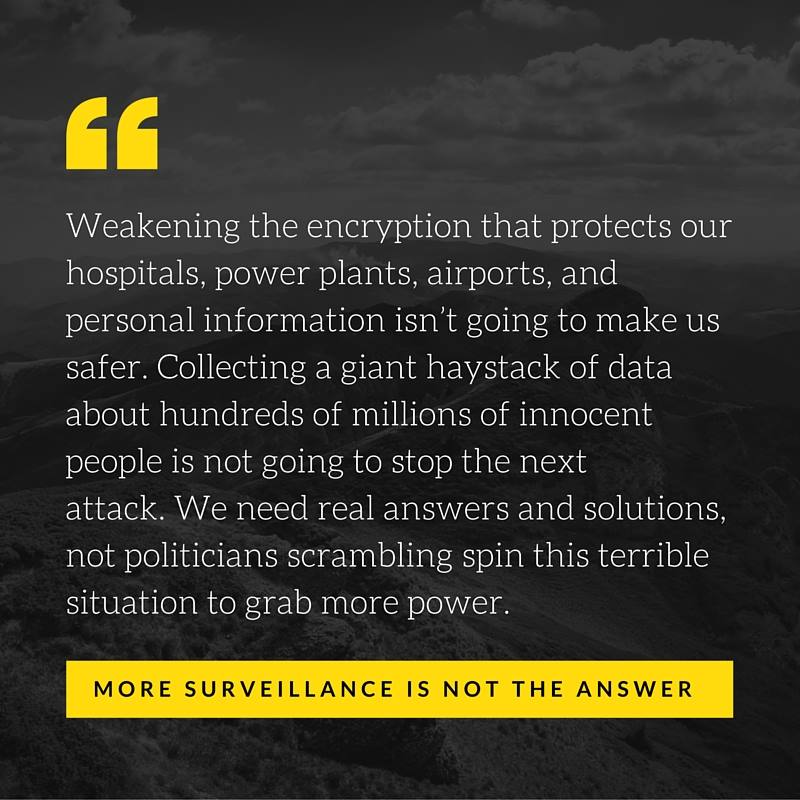
Author: HAX
-
Post Paris: EU to clamp down on Bitcoin, gold and pre-paid credit cards
Tomorrow, Friday, EU interior and justice ministers will meet in Brussels — for an emergency meeting after the Paris terror attacks.
According to Reuters, EU member states “plan a crackdown on virtual currencies and anonymous payments made online and via pre-paid cards in a bid to tackle terrorism financing”.
“They will urge the European Commission, the EU executive arm, to propose measures to “strengthen controls of non-banking payment methods such as electronic / anonymous payments and virtual currencies and transfers of gold, precious metals, by pre-paid cards,” draft conclusions of the meeting said.”
In other words, governments would like to take control of all forms of payments except cash. And with EU rules against money laundering access to cash also can be quite restricted.
It would be very interesting to know how the EU is supposed to “strengthen control” of Bitcoin — as the system is totally decentralized. I doubt that they can.
But they can make life more difficult for ordinary people if clamping down on e.g. pre-paid credit cards and online payment systems.
This EU meeting is being held in panic, with politicians desperate to look as if they are doing something of substance to combat terrorism. So, I guess, they really haven’t thought things trough. And they leave all the details to the European Commission to figure out.
This might result not in an EU directive, but an EU regulation. If that will be the case, measures can quickly be implemented without having to involve the people’s elected representatives in the European Parliament.
/ HAX
-
EU centre-right group using Paris tragedy to try to kill data protection directive
Since the Paris attacks politicians, police and intelligence agencies have pushed for more mass surveillance. And now, it seems they are also trying to undermine the new EU framework for data protection.
The EU data protection directive has been under massive fire from special interests and member states in the council. But the European Parliament has been firm in insisting on a clear and meaningful framework to protect citizens private data.
Now the centre-right group in the parliament, the EPP, is trying to suspend these negotiations.
“In the aftermath of the cruel attacks in Paris on Friday, Axel Voss MEP, in his capacity as EPP Group Shadow Rapporteur for the Data Protection Directive, has called for the immediate suspension of the Data Protection Directive trialogues and a review of the mandate to identify the impact of the draft text on law enforcement capacity to exchange information.” (…)
“According to Axel Voss, the text stipulates major bureaucratic burdens to law enforcement and security entities and would basically transform them into data protection officers when processing personal data for the purpose of prevention, investigation, detection or prosecution of criminal offences and terrorist activities.”
What this is all about, is the EPP trying to use the tragedy in Paris to undermine the demands for authorities to use citizens personal data in a responsible way. But there should and must be rules for authorities as well.
Data protection is more important today than ever before. Especially when authorities are riding on a wave of fear, trying to advance their positions when it comes to surveillance and data mining.
Link: Data Protection Directive trialogue should be suspended »
/ HAX
-
Mass surveillance makes us less safe

Our thoughts are with the victims of the terror attacks in Paris.
But we should not allow ourselves to react in a thoughtless way. Terrorists want to impose fear –leading us away from a free, open and democratic society.
France already has one of the most intrusive regimes of mass surveillance in the western world. Apparently, this did not stop the terrorists.
Actually, it might very well be that mass surveillance makes us all less safe. The number of “false positives” makes serious police work more difficult. Dependence on electronic surveillance systems also directs resources away from old fashion police activites, intelligence operations, informed analysis and “HUMINT” (Human Intelligence).
Naturally, there is a place for advanced forms of electronic surveillance. But it should be focused on individuals and groups who are suspected to prepare for criminal activities. And to identify such targets, HUMINT is essential.
Time and time again it has been revealed that terrorists have been on the security services radar before striking. But the what, where and when is normally never communicated in ways that can be intercepted by mass surveillance. Here you need targeted surveillance, old-fashioned spies and qualified intelligence analysis. This is hard work, it takes time, it is costly and it can be dangerous. But it is what is effective to keep us reasonably safe from terrorism. (If at all possible.)
And given that the whole point of fighting terrorism is to defend our free, open and democratic society — it would be counter-productive to treat all citizens as potential terrorists and criminals. The people is not the problem.
/ HAX
-
EU to make linking illegal?
The EU Commission is working on a new and updated legal framework for copyright. A draft has been leaked — and it raises some serious questions about what the EC is up to.
Most notably it covers “ancillary copyright”, a term used when it comes to Internet linking in relation to copyright.
From the beginning, this was about German and Spanish newspapers wanting Google to pay for linking to their material. This idea went down in flames, as Google stopped linking — and the publishers had to beg them to start linking again.
Now it seems that the EC is taking a new and broader approach to this issue.
The fear is that unless you have explicit permission to do so in every single case, linking to copyright-protected material (articles, pictures, video, sound) will become illegal.
This would be a fatal blow to the entire concept of a world wide web. Linking is the very neuronic system of the Internet. Having to ask for permission or seek among different sorts of licenses before you link could be extremely time-consuming and bureaucratic. People would rather refrain from linking all together.
One (of many) unintended consequences would be hampering the open, democratic debate online.
And old style media wouldn’t gain anything from it. Opposite, they would lose readers and clicks. (Like experience from Germany and Spain clearly demonstrate.)
The reasonable standpoint is that if you put something on the Internet, others should be allowed to link to it.
But that might not be the way the EC sees it.
/ HAX
• Ancillary Copyright 2.0: The European Commission is preparing a frontal attack on the hyperlink »
• Pirate Party MEP Julia Reda: EU Preparing ‘Frontal Attack On The Hyperlink’ »
• Leaked Draft Reveals EU Anti-Piracy Enforcement Plan » -
Putin vs. Charlie Hebdo
Russian president Vladimir Putin lashing out against free speech is no news. But this time, he attacks freedom of the press in another country — France.
The background is that the French magazine Charlie Hebdo has published two cartoons relating to the Russian air disaster in the Sinai. One of the two cartoons is focusing on the quality of Russian low fair airlines – and the other making a connection between the disaster and the fact that Russia has now become involved in fighting ISIS, in Syria.
Especially the last one touches on a highly sensitive issue in Russia: The connection between “Putin’s war” in Syria and terrorist attacks against Russian civilians.
Every suggestion of such a connection is seen as undermining Vladimir Putin.
At Chalie Hebdo, they choose not to give in but to speak back. The magazine’s editor-in-chief, Gerard Biard:
“Their argument about sacrilege is absurd. Are we supposed to no longer comment on the news in a different way, or to say nothing more than it’s sad? If so that becomes a problem for freedom of expression.”
The Guardian: Russia condemns Charlie Hebdo for Sinai plane crash cartoons »
/ HAX
-
Sanctuary for Snowden!
There is a widespread misinterpretation of what the European Parliament had to say about the NSA whistleblower Edward Snowden last week.
The EP did not grant Snowden asylum. It can’t. This is what was decided:
2. Calls on the EU Member States to drop any criminal charges against Edward Snowden, grant him protection and consequently prevent extradition or rendition by third parties, in recognition of his status as whistleblower and international human rights defender;
In the EU, only member states can grant him asylum or other forms of sanctuary. And they rather not.
So, it’s up to us.
If you live in an EU member state, you must try to influence your government to do the right thing.
You will have to start petitions, set up Facebook groups, hold rallies, write to politicians and increase the political pressure in your country. That’s the only way to move this matter forward.
Edward Snowden exposed global mass surveillance. He showed the world that politicians do not trust the people. He revealed that our political leaders and their functionaries do not care about human and civil rights.
Edward Snowden is a hero. And he should be treated as one.
But to make that happen, you must get involved.
/ HAX